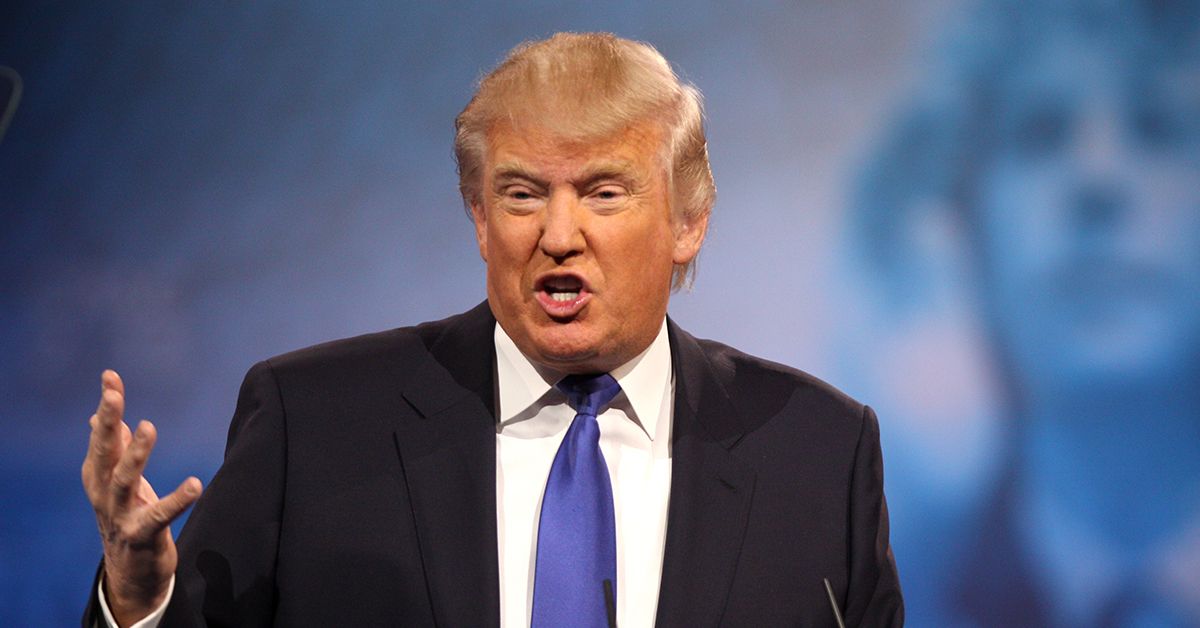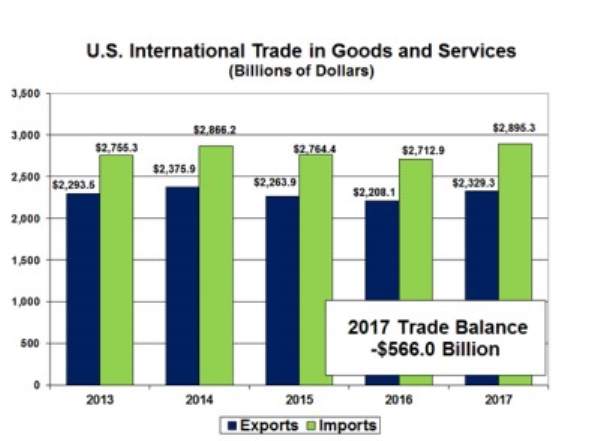On 8 March 2018 President Donald Trump repeated an often-derided claim regarding the U.S. trade deficit during a press conference in the White House.
The president said that the country currently has a global trade deficit of $800 billion — a statement he has reportedly made more than 50 times since 2015. The remark at the press confrence came one day after he repeated the claim on his Twitter account. However, as news outlets have pointed out, that figure leaves out the fact that the U.S. has a trade surplus. As a report released by the Commerce Department shows, the actual deficit is $566 billion:
The report said:
The 2017 increase in the goods and services deficit reflected an increase in the goods deficit of $57.5 billion or 7.6 percent to $810.0 billion and a decrease in the services surplus of $3.7 billion or 1.5 percent to $244.0 billion.
A report published by the White House in February 2018 stated that the U.S. economy has become more dependent on trade involving "private service-producing industries" such as engineering, travel, and finance among others:
Travel (including that for educational purposes) has constituted the largest share of U.S. services exports. Services trade between countries has continued to grow — given declining travel costs, improvements in telecommunications, and growth in online services that allow, for example, computer coding to take place in remote locations. This allows the United States to export high-skilled services to other countries that do not share our
expertise and training advantages.
Focusing on trade of tangible goods alone, the report added, ignored the country's "comparative advantage" in service-related trade.
Trump reiterated his misleading claim on the same day he officially imposed tariffs of 25 percent and 10 percent on steel and aluminum, respectively. Mexico and Canada — the country's partners in the North American Free Trade Agreement — are exempted from those tariffs, and other countries will be allowed to petition for separate exemptions. The president's plan to impose the tariffs led to the resignation of White House chief economic advisor Gary Cohn on 6 March 2018.
The Trump administration said that the tariffs will take effect on 23 March 2018.


